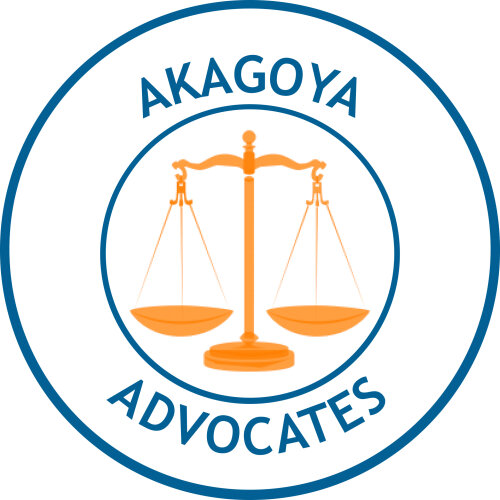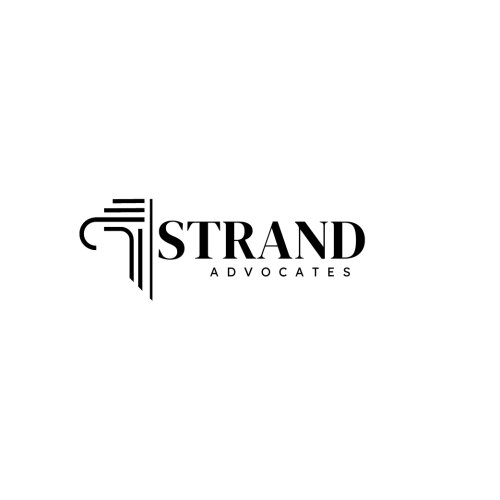Best Land Use & Zoning Lawyers in Uganda
Share your needs with us, get contacted by law firms.
Free. Takes 2 min.
Free Guide to Hiring a Real Estate Lawyer
Or refine your search by selecting a city:
List of the best lawyers in Uganda
About Land Use & Zoning Law in Uganda
Land Use & Zoning laws in Uganda govern how land is utilized in relation to social, economic, and environmental considerations. Applicable nationwide, these laws are crucial for managing Uganda's land resources sustainably. The legal framework includes regulations and guidelines that influence their planning, development, and environmental sustainability. Government agencies such as the Ministry of Lands, Housing, and Urban Development play a primary role in the implementation and enforcement of these laws. Urbanization, agricultural development, and industrial growth necessitate a strategic approach to land management, underscoring the importance of understanding these laws.
Why You May Need a Lawyer
Legal assistance might be necessary in various scenarios involving Land Use & Zoning in Uganda. Common situations include:
- When purchasing or developing land, to ensure compliance with zoning laws and regulations.
- In disputes over land boundaries or encroachments.
- For rezoning requests or obtaining permits for specific land uses.
- When challenging decisions by zoning authorities or municipalities.
- Addressing issues of land tenure and customary land rights.
- In cases of expropriation or compulsory land acquisitions by the government.
- Involvement in land development projects that require environmental impact assessments.
Local Laws Overview
Key aspects of local laws relating to Land Use & Zoning in Uganda include:
- The Land Act: Governs land ownership, use, and management, including customary and freehold land tenure systems.
- The Physical Planning Act: Provides for planning and control of urban and rural areas, ensuring systematic and sustainable development.
- The Environmental Act: Enforces environmental considerations in land use planning and zoning decisions.
- The Local Governments Act: Empowers local governments to manage and zone land within their jurisdictions.
Frequently Asked Questions
What is zoning?
Zoning involves dividing land into zones where certain uses are permitted or prohibited to achieve planned urban development and land use efficiency.
How can I find out the zoning classification for my property?
You can consult the local municipal council or the Ministry of Lands, Housing, and Urban Development for zoning maps and classifications.
Can zoning laws affect my residential property?
Yes, zoning laws can dictate what modifications you can make to your property, including renovations, expansions, and the type of activities allowed.
How can I challenge a zoning decision in Uganda?
You can challenge zoning decisions by petitioning the relevant council or court, often with legal assistance to navigate the process effectively.
Are there specific laws for agricultural land use?
Yes, agricultural land use is covered under the Land Act along with other specific regulations that manage sustainable agricultural practices.
What are environmentally sensitive areas in zoning?
These areas, often protected under the Environmental Act, are zones where development is restricted to protect ecological integrity and biodiversity.
What is a land use permit?
A land use permit is an authorization granted by local authorities allowing a property owner to use land for a specific purpose.
Who enforces zoning regulations in Uganda?
Zoning regulations are enforced by municipal councils and local governments, with oversight from the Ministry of Lands, Housing, and Urban Development.
Is there a process for changing the zoning of my property?
Yes, property owners can apply for rezoning through local governments, usually involving public hearings and assessments to determine appropriateness.
Do I need a lawyer for a zoning violation case?
Legal representation is advisable in cases of zoning violations as lawyers can navigate complex regulations and defend your rights effectively.
Additional Resources
For further assistance or information, you may consider reaching out to:
- The Ministry of Lands, Housing, and Urban Development: Handles national land management issues.
- Local Municipal and District Councils: Manage zoning at municipal and district levels.
- The Uganda Land Commission: Oversees overall land policies and management.
- Non-Governmental Organizations: Several NGOs offer legal aid and advice, especially involving customary land rights and environmental concerns.
Next Steps
If you require legal assistance in Land Use & Zoning, consider the following steps:
- Identify your specific legal needs or issues related to Land Use & Zoning.
- Consult with a lawyer specializing in land laws in Uganda, who can provide tailored advice.
- Gather necessary documents related to your land or zoning concerns, such as deeds, zoning maps, and relevant correspondence.
- Explore local legal aid services if cost is a concern, as some organizations might offer free or reduced-cost legal advice.
- Stay informed about local zoning laws and regulations by attending relevant community meetings and consultations held by local authorities.
Taking these steps can significantly help in navigating Land Use & Zoning concerns effectively and ensuring your rights are protected.
Lawzana helps you find the best lawyers and law firms in Uganda through a curated and pre-screened list of qualified legal professionals. Our platform offers rankings and detailed profiles of attorneys and law firms, allowing you to compare based on practice areas, including Land Use & Zoning, experience, and client feedback.
Each profile includes a description of the firm's areas of practice, client reviews, team members and partners, year of establishment, spoken languages, office locations, contact information, social media presence, and any published articles or resources. Most firms on our platform speak English and are experienced in both local and international legal matters.
Get a quote from top-rated law firms in Uganda — quickly, securely, and without unnecessary hassle.
Disclaimer:
The information provided on this page is for general informational purposes only and does not constitute legal advice. While we strive to ensure the accuracy and relevance of the content, legal information may change over time, and interpretations of the law can vary. You should always consult with a qualified legal professional for advice specific to your situation.
We disclaim all liability for actions taken or not taken based on the content of this page. If you believe any information is incorrect or outdated, please contact us, and we will review and update it where appropriate.
Browse land use & zoning law firms by city in Uganda
Refine your search by selecting a city.
















